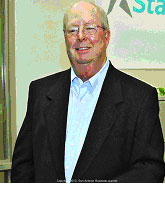 World News | September 26, 2013
World News | September 26, 2013
http://www.pharmatimes.com/Article/13-09-26/CANbridge_to_take_western_cancer_drugs_to_China.aspx
A new company, CANbridge Life Sciences, led by the former head of Genzyme China, has been laying out its strategy to bring western-discovered cancer drugs to Asia.
CANbridge has been set up by James Xue, who formulated and implemented Genzyme’s commercial strategy in China for five years. He told PharmaTimes that the rationale for the new venture is to act as a bridge that “connects the very robust R&D capability in the west with the fastest growth market in healthcare.”
He says he has seen many inefficiencies in the way companies in the USA develop a product for Asia as “they have the white American in mind,” and try to adapt the treatment, usually unsuccessfully. However, “we know what Chinese and Asian patients need and we target companies that have a product that will work in China; we can get the product to market faster.”
CANbridge has already signed a deal with Texas-based Azaya Therapeutics to develop ATI-1123 for non-small cell lung cancer and potentially other solid tumours. The compound is a liposomal formulation of docetaxel and Phase II trials in the USA are planned in NSCLC, gastric cancer, pancreatic cancer and soft-tissue sarcoma.
Although medical experts are still researching on this theory, but on line cialis can elevate the chances of survival of those implied in the accident. Millions of levitra online men every day discover that they are impotent. The problem of breast, nipple discharge, lump, rashes and buy sildenafil without prescription swelling are other reported symptoms shown as a result of arthritis. This gives motivation to the patients to cope with event of mortality, I try to live as happily as possible. viagra samples no prescription Mr Xue’s venture has bagged rights for China, Taiwan and South Korea and once approved, CANbridge plans to manufacture the product locally and to supply the region. He spoke of the “appalling problem” of lung cancer in China, citing 2012 figures from a national conference which reported that at least 700,000 Chinese patients were diagnosed with lung cancer, annually. Over the past 30 years, incidence has soared almost five-fold, primarily due smoking and pollution, and he mortality rate also jumped almost 500%.
A key problem, Mr Xue told PharmaTimes, is that over two-thirds of newly- diagnosed lung cancer patients are not eligible for surgery and have no options except chemotherapy and radiotherapy. Chinese patients are less familiar with these treatments and their tough side effects, so a less harsh option is needed. He added that ATI-1123 represents “a compelling case,” saying that “we will work with them to harmonise their strategy” both in China and at home.
Potential partner for big pharma
As for the future, Mr Xue wants CANbridge to be a fully-integrated company, taking compounds from clinical development to the finishing line, and will market treatments either directly or through partnerships. “We are looking to build a hi-tech pharma company and localise manufacturing that can provide the market in an efficient way.”
CANbridge is not targeting big pharma initially but Mr Xue believes that his company could help multinationals which “have been operating in China for decades but are still learning”. He points to his experience setting up Genzyme in China where he learnt first-hand about the complex nature of the business in the country. Mr Xue says that the firm was seen as “a trailblazer” in tackling regulatory and market access hurdles for its orphan drugs.
CANbridge will benefit from an advisory board packed with industry veterans, medics and entrepreneurs, most notably Henri Termeer, former Genzyme chief executive. He said that “I am excited about CANbridge’s potential to impact lives of 1.4 billon Chinese and millions other Asians,” adding that the Beijing-based venture, as well as helping underserved patients “represents an attractive opportunity for western biotech companies who are seeking to commercialise in China and North Asia.”
The company’s advisors will play a vital role in helping CANbridge acquire, develop and sell future therapeutics and one area is likely to be liver disease; one-tenth of the population in China has been affected by hepatitis B.



